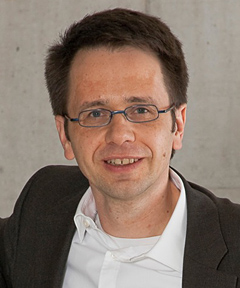Learning together – promoting individually
The Konstanz education researcher Prof. Dr. Thomas Götz tells us about his vision of the ideal type of school

Since 2007, Prof. Dr. Thomas Goetz has held a so-called bridge professorship for Educational Research at the University of Konstanz and the University of Teacher Education Thurgau (PHTG) in neighbouring Kreuzlingen (Switzerland). At both institutions he is in charge of student education to become a Gymnasium teacher. His research interests are antecedents of emotions in the learning and performance context, domain specificity of emotional experience, boredom in the classroom, promotion of self-regulated learning in secondary education and teaching quality. Before coming to Konstanz he held interim professorships at the University of Erfurt and the University of Education in Heidelberg. Thomas Goetz received his doctorate at the Ludwig-Maximilians University in Munich in psychology, where he has also received his post-doctoral degree in educational psychology. Before graduating with a degree (Diplom) in psychology at the University of Regensburg, he was already qualified as a music teacher with the organ as his major.
Apropos
Professor Götz, did you enjoy going to school?
Mostly yes – I have always enjoyed learning and thinking through things. School is also a social space in which I felt very comfortable. But I was often bored at school – which is perhaps one of the reasons why I am now researching boredom.
What were your favourite subjects?
Math – for me it was always like a puzzle, and German - though I as a lefty always had terrible handwriting and still do. In primary school I had to fill out countless additional "penmanship sheets."
There were not many schools to select from when you were young. Do you regret this in retrospect?
No, ultimately it was the individual teachers who shaped my school days.
Would you like to have been promoted more individually?
Yes. There were subjects, such as mathematics, which were very easy for me and where I often felt under-challenged. And then there were also subjects in which I really had problems, such as in chemistry. Individual support would have been helpful. But outside of school, I was encouraged by my parents very individually - for example, with piano lessons.
What does your dream school look like?
A school where not teaching but learning is in the foreground and the learning process is encouraged and supported according to the pupils’ abilities.
Does this dream school need to remain an illusion?
If we have no set ideas, we can not reduce the difference to how things actually turned out. In other words, if we had no dreams, they could never become reality.
